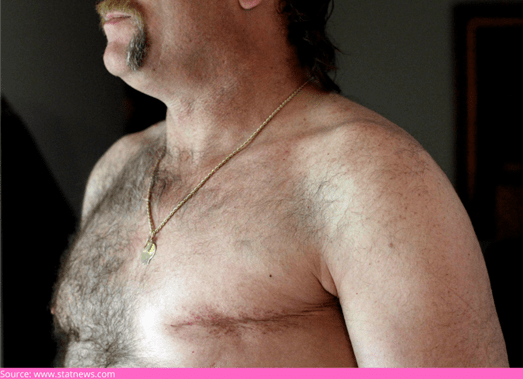Women can now successfully fight breast cancer thanks to technological advancements, surgical intervention, as well as knowledge obtained about preventive measures. October is breast cancer awareness month, and although many of us may believe that there is already a lot of breast cancer awareness in this day and age, it is truly astounding how many myths coexist with reality.

Despite the lack of supporting data, numerous myths about breast cancer exist. The drawback is that if people start believing these myths, confusion and misunderstandings concerning risk factors will also rise.
Misconceptions about breast cancer can lead to unfounded anxiety or delay in seeking treatment, says Dr. Garvit Chitkara, an eminent breast cancer surgeon in Mumbai.
Here are a few of the most common myths about breast cancer and the facts to set them straight.
Myth #1: Breast cancer is contagious
Breast cancer is not contagious. You cannot “catch” breast cancer from someone else.
Breast cancer occurs when abnormal cells in the breast begin to grow out of control. These abnormal cells can develop due to various factors, including genetics, certain hormones, and exposure to certain chemicals or radiation. But breast cancer is certainly not something you can catch from someone else by being in close proximity, sharing meals, etc.
Myth #2: Breast cancer is only a woman’s disease
While breast cancer is much more common in women than men, men can develop breast cancer, too. In fact, about 1 in 1,000 men will be diagnosed with breast cancer at some point in their lives.
Mortality rates in men with breast cancer are higher than in women. The well-known breast surgical oncologist in Mumbai, Dr. Garvit Chitkara, explains that this may be related to men’s poorer levels of understanding and propensity to postpone seeking medical attention when they find a lump.

By being aware of the symptoms, breast cancer in men can be identified earlier and treated more effectively. The primary sign of male breast cancer is a hard lump that can be felt underneath the nipple and areola, along with a change in the color of the surrounding tissue.
So men, do not ignore potential warning signs just because you think breast cancer cannot happen to you.
Myth #3: Wearing underwire bras increase the risk of breast cancer
There is no scientific evidence to support the claim that wearing underwire bras can strain and press the breast’s lymphatic system, causing pollutants to accumulate and ultimately lead to breast cancer.
The common myth that wearing your bra all day or all night prevents your pores from breathing properly and causes an accumulation of sweat and toxins, eventually leading to cancer, has also been refuted.
Neither the sort of bra you wear nor how tightly your undergarments are fitted have any relation to your chance of developing breast cancer. However it would be advisable to wear a well fitting comfortable bra during the day time.
Myth #4: All breast lumps are cancerous
Breast tissue frequently changes because of fluctuating hormone levels, particularly during menstruation and breastfeeding. It is crucial to know how your breasts typically feel and appear and what symptoms you need to watch out for.
Not all breast lumps are cancerous. In fact, most breast lumps are benign, meaning they are not cancerous.
However, Dr. Garvit Chitkara, often called the best breast onco surgeon in Mumbai, cautions that if you find a lump in your breast, it is important to see a doctor so that the lump can be evaluated. Only a doctor can determine whether a breast lump is benign or cancerous.
Myth #5: Pain in the breast means cancer
However, it is advisable that you see a doctor if you have severe or persistent breast pain that is unrelated to your menstrual cycle.
Myth #6: Breast self-exams are useless
Dr. Garvit Chitkara, a renowned breast oncologist in Mumbai, says that breast self-exams are not a replacement for regular mammograms; however, they can be a helpful addition to your breast cancer screening plan.

Myth #7: Every breast cancer treatment involves mastectomy (breast removal)
Only breast cancer that is in advanced stages is operated on with a mastectomy where the affected breast is removed. After a mastectomy, breast reconstruction surgery can restore the lost breasts’ aesthetic appeal.
Treatment for breast cancer is based on the specific situation and cancer stage. For a full recovery, the doctor will offer a specialized therapy regimen.
Conclusion

Can the above image be that of a male doctor talking to a woman
Breast cancer is a serious subject, not a matter to be taken lightly. It is the most common cancer among women, but it is also one of the most misconstrued. People are often fed false information about breast cancer that can be harmful and misleading.
We all know how serious breast cancer can be, so when we hear something that conflicts with our knowledge, we take notice. And in recent years, we have heard a lot of myths about this disease. Myths cause unneeded anxiety and perhaps make it more challenging to make wise choices regarding prevention and treatment. It is essential to be informed about breast cancer so that you can separate fact from fiction.
If you or a loved one needs medical intervention for breast cancer, please do not delay starting the treatment. Please consult Dr. Garvit Chitkara, one of the preferred oncologists for patients needing breast cancer surgery in Mumbai.

